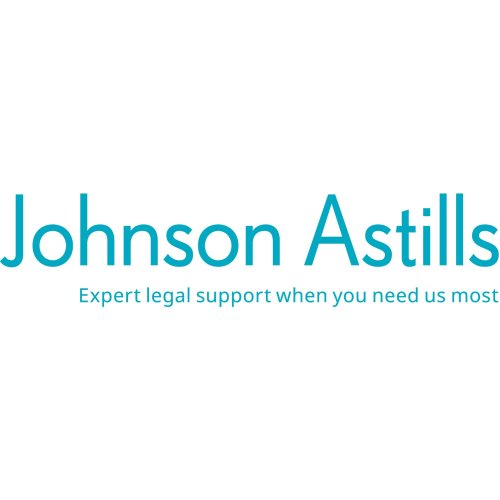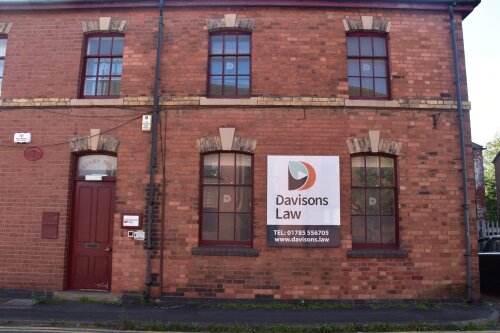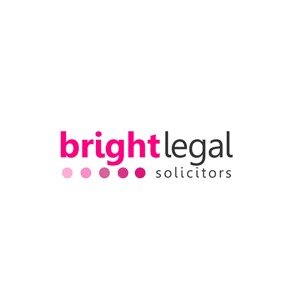Best Conveyancing Lawyers in United Kingdom
Share your needs with us, get contacted by law firms.
Free. Takes 2 min.
Free Guide to Hiring a Real Estate Lawyer
Or refine your search by selecting a city:
List of the best lawyers in United Kingdom
About Conveyancing Law in United Kingdom
Conveyancing refers to the legal process of transferring ownership of property or land from one party to another. In the United Kingdom, conveyancing typically involves preparing and reviewing documents, performing necessary searches, and ensuring the lawful exchange of funds and property. It is a detailed process regulated by various laws and professional standards to ensure both buyer and seller are protected and all necessary legal steps are completed properly.
Why You May Need a Lawyer
Most individuals or businesses involved in property transactions will require a conveyancing solicitor or licensed conveyancer. Legal assistance is essential to:
- Review and draft contracts for the sale or purchase of property.
- Conduct searches on the property, including local authority, environmental, and water and drainage searches.
- Ensure there are no undisclosed legal issues, such as restrictive covenants or unpaid charges.
- Manage financial transactions, including handling deposits and completion funds securely.
- Register the new ownership with HM Land Registry.
- Deal with leasehold properties, shared ownership, or new builds which often involve extra complexities.
- Provide legal advice if the transaction involves complications, disputes, or legal claims.
Local Laws Overview
Conveyancing law in the UK is primarily governed by statute and regulatory bodies such as the Law Society and the Council for Licensed Conveyancers. Key features include:
- Properties must be correctly registered with HM Land Registry in England and Wales or the relevant body for Scotland and Northern Ireland.
- Both leasehold and freehold properties involve specific legal requirements. Leasehold properties, in particular, have unique considerations around ground rent and service charges.
- Anti-money laundering regulations require clients to provide proof of identity and source of funds.
- Stamp Duty Land Tax applies in England and Northern Ireland, Land and Buildings Transaction Tax in Scotland, and Land Transaction Tax in Wales, which must be calculated and paid on completion.
- There are strict protocols and timelines for exchange of contracts and completion dates.
- Certain transactions, such as new-builds or Help to Buy schemes, have specific legal frameworks.
Frequently Asked Questions
What is conveyancing?
Conveyancing is the legal process of transferring property ownership from one party to another. This ensures the buyer receives the title to the property free from unwanted claims or debts.
Can I do my own conveyancing?
It is legally possible but generally not recommended unless you have a legal background. The process can be complex, and mistakes can lead to significant financial loss or legal problems.
How long does conveyancing take?
Typical transactions take between 8 and 12 weeks, but the timeframe can vary depending on the property's complexity and any queries or chain delays.
What searches are involved in conveyancing?
Essential searches include local authority, environmental, water and drainage, and sometimes additional searches depending on the location or type of property.
What is the difference between freehold and leasehold?
Freehold means you own the property and the land it stands on outright. Leasehold means you have ownership of the property for a set period but not the land, which typically involves ground rent and service charges.
What are the costs involved in conveyancing?
Costs typically include solicitor or conveyancer fees, search fees, Land Registry fees, and stamp duty or equivalent taxes. Always request a breakdown of costs upfront.
When do I pay the deposit?
The deposit, usually 10 percent of the property price, is paid at exchange of contracts. This makes the sale legally binding.
What happens at completion?
Completion is when the purchase price is paid in full, and the keys are handed over. The property officially changes hands on this day, and you become the legal owner.
Do I need a solicitor for remortgaging?
You may need a solicitor or conveyancer if your new mortgage lender requires legal representation or if there is a transfer of equity or title. Some lenders offer this service as part of the mortgage package.
What can delay the conveyancing process?
Common delays include incorrect or missing documentation, chains involving multiple parties, disputes over property boundaries, or slow responses from other parties or authorities involved.
Additional Resources
Many organizations and governmental bodies offer guidance and support during the conveyancing process in the United Kingdom:
- HM Land Registry provides public records and information on the property ownership process.
- The Law Society offers a searchable directory of qualified conveyancing solicitors.
- The Council for Licensed Conveyancers regulates licensed conveyancers and offers consumer information.
- Citizens Advice supplies general legal guidance and advice on buying or selling property.
- MoneyHelper provides financial advice, including information about property costs and stamp duty.
Next Steps
If you require legal assistance for a property transaction, your next steps should include:
- Research and select a qualified conveyancing solicitor or licensed conveyancer with experience in your type of transaction.
- Obtain initial quotes and understand what services and costs are included.
- Prepare your personal identification and financial documents to meet regulatory requirements.
- Communicate openly with your legal representative to keep your transaction on track and avoid unnecessary delays.
- Do not sign any contracts or pay deposits until your solicitor or conveyancer has reviewed all documentation and provided advice.
By seeking advice and support from accredited professionals, you can ensure your conveyancing process is efficient, secure, and legally sound.
Lawzana helps you find the best lawyers and law firms in United Kingdom through a curated and pre-screened list of qualified legal professionals. Our platform offers rankings and detailed profiles of attorneys and law firms, allowing you to compare based on practice areas, including Conveyancing, experience, and client feedback.
Each profile includes a description of the firm's areas of practice, client reviews, team members and partners, year of establishment, spoken languages, office locations, contact information, social media presence, and any published articles or resources. Most firms on our platform speak English and are experienced in both local and international legal matters.
Get a quote from top-rated law firms in United Kingdom — quickly, securely, and without unnecessary hassle.
Disclaimer:
The information provided on this page is for general informational purposes only and does not constitute legal advice. While we strive to ensure the accuracy and relevance of the content, legal information may change over time, and interpretations of the law can vary. You should always consult with a qualified legal professional for advice specific to your situation.
We disclaim all liability for actions taken or not taken based on the content of this page. If you believe any information is incorrect or outdated, please contact us, and we will review and update it where appropriate.
Browse conveyancing law firms by city in United Kingdom
Refine your search by selecting a city.
















